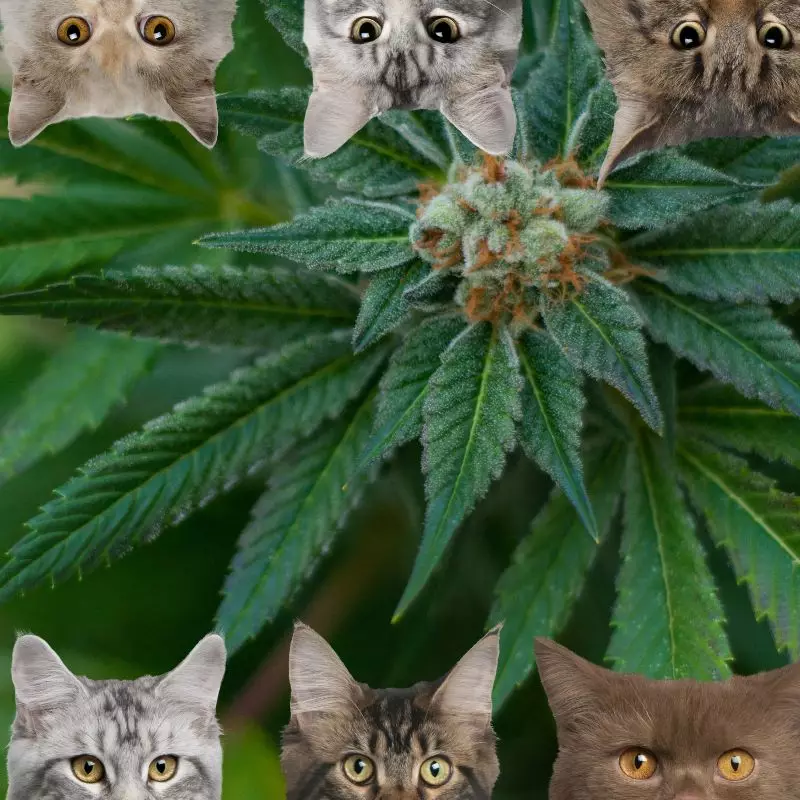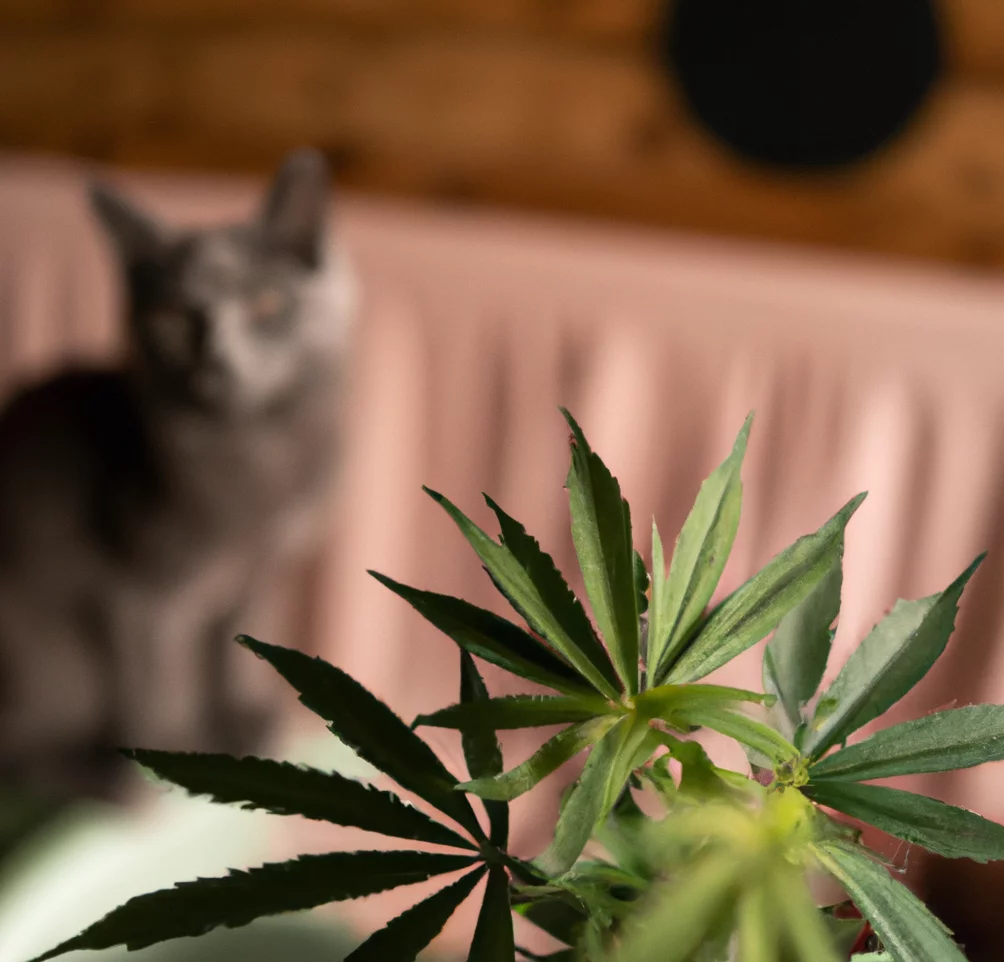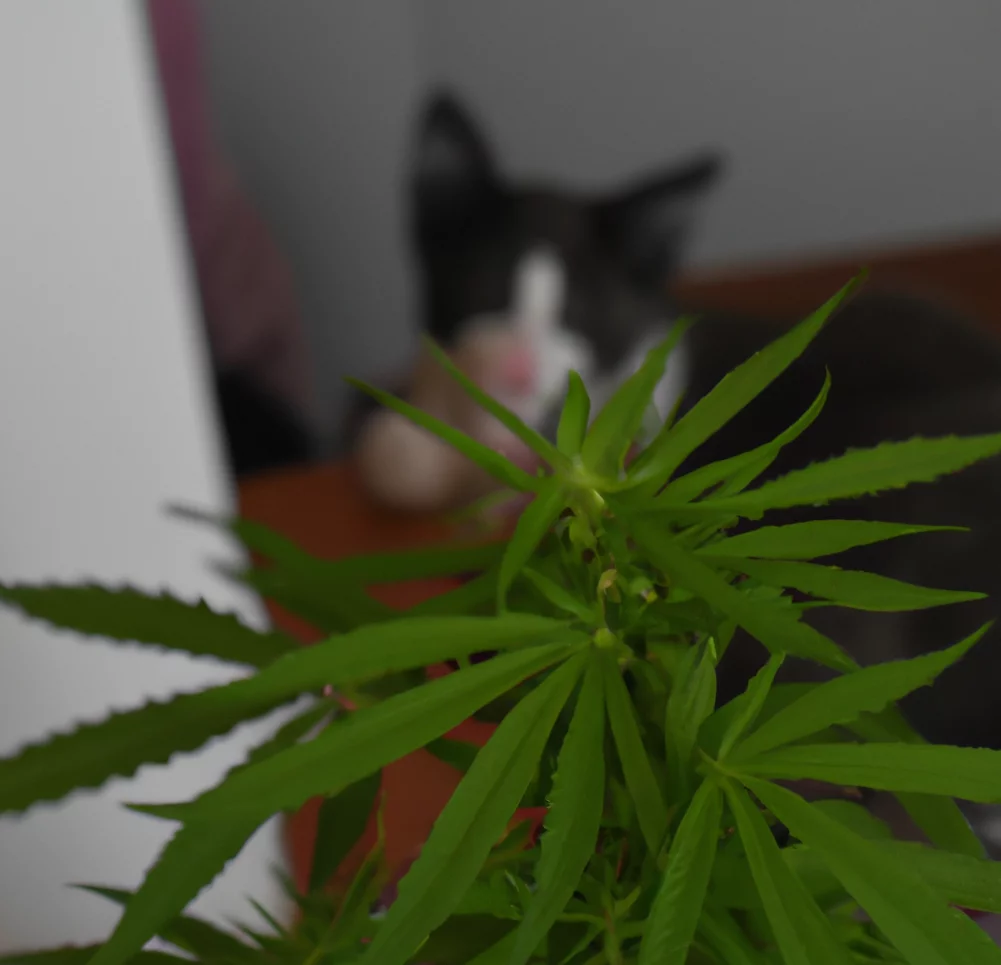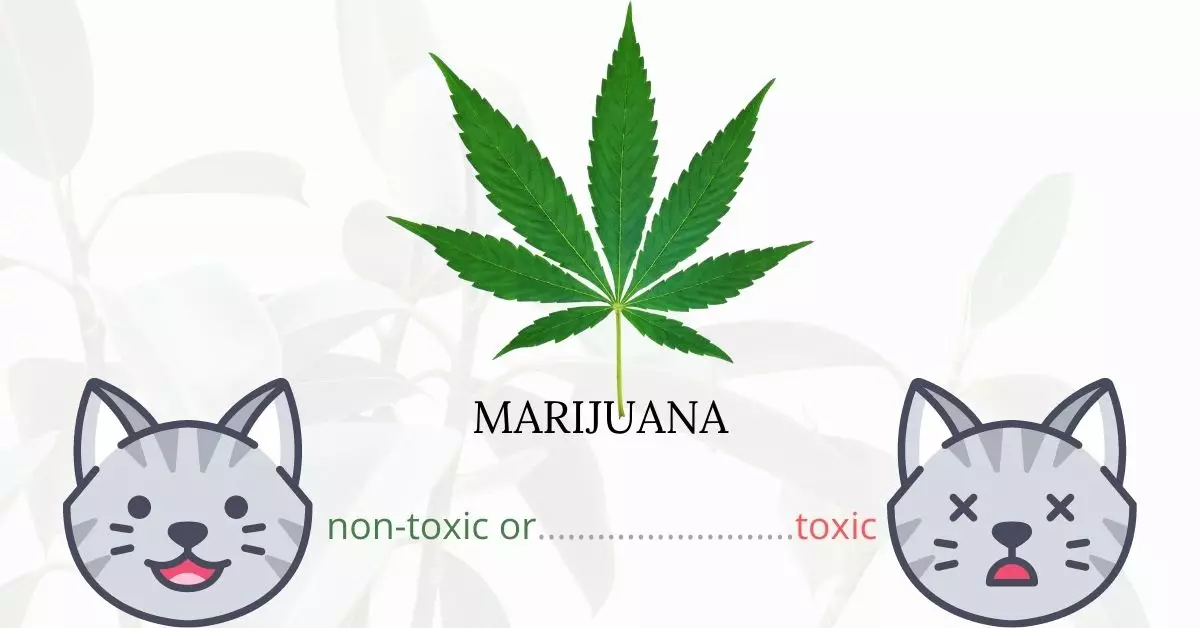Yes, Indian hemp, commonly referred to as marijuana, can be toxic to cats.
This article was written in collaboration with a team of experienced DVMs (doctors of veterinary medicine). Through their expert contributions, we provide accurate and up-to-date information on the potential risks associated with Indian Hemp and its effects on cats. Our comprehensive research also included high-authority websites such as ASPCA and PetMD.
Marijuana contains tetrahydrocannabinol (THC), which is recognized for its medicinal and recreational uses. With the increasing availability of THC-containing products, there’s a greater risk of cats being exposed to this substance. This exposure can stem from ingestion of marijuana products or even secondhand smoke. When ingested or inhaled, THC binds to neuroreceptors in the brain, including norepinephrine, serotonin, and acetylcholine. This binding disrupts the regular function of these neurotransmitters, leading to potential toxicity in cats.
Clinical Signs of Indian Hemp or Marijuana Poisoning in Cats

When cats come into contact with or consume Indian Hemp (marijuana), they may exhibit a range of clinical signs due to the effect of THC on their neurological and physiological systems. Understanding these symptoms and their underlying causes can help pet owners quickly identify potential marijuana poisoning and seek timely veterinary care. The following are some of the clinical signs and their reasons:
- Depression & Lethargy: Marijuana affects the central nervous system, making cats appear listless and uninterested in their surroundings.
- Loss of Motor Coordination: THC disrupts neurotransmitter functions, which can lead to uncoordinated movements or stumbling.
- Urinary Incontinence: Disrupted nerve functions may lead to a loss of bladder control.
- Low Heart Rate & Low Blood Pressure: THC can affect the cardiovascular system, leading to decreased heart rate and blood pressure.
- Respiratory Depression: Reduced breathing rate is another potential side effect of THC affecting the cat’s respiratory centers.
- Dilated Pupils: THC can cause overstimulation of certain parts of the brain, leading to dilated pupils.
- Vocalization (Crying or Whining): This could be an expression of discomfort or distress caused by the altered mental state.
- Agitation: Some cats might exhibit signs of restlessness due to THC’s stimulatory effects.
- Drooling & Vomiting: Marijuana can irritate the gastrointestinal system, leading to increased salivation and potential vomiting.
- Seizures: In severe cases, the disruption of neurotransmitters can lead to seizures.
- Coma: Extremely high doses or prolonged exposure can depress the central nervous system to the point of inducing a coma.
- Increased Stimulation to Noises or Fast Movements: Overstimulation caused by THC can make cats more reactive to sudden sounds or movements.
Symptoms of marijuana toxicity in cats can manifest within minutes to 12 hours post-exposure and can last from an hour to several days. If you observe any of these signs in your feline, promptly bring them to the nearest veterinary clinic for appropriate care.
First Aid and Treatment of Indian Hemp or Marijuana Poisoning in Cats

Indian hemp or marijuana poisoning has no antidote, so treating marijuana exposure usually entails attempting to eliminate the drug from the system, treating secondary symptoms, and providing support until the drug is eliminated from the system. The treatment process may include the administration of activated charcoal, medications such as maropitant, which may be given to control vomiting or seizures in severe cases, and intravenous fluids, which can also help eliminate the drug from the body.
Recovery from Indian Hemp or Marijuana Poisoning in Cats

Recovery from Indian hemp or marijuana toxication may take longer than 24 hours. This will still vary depending on the extremities of the cat’s condition. The larger quantity ingested or the longer the time of exposure to the said toxic plant, the longer the recovery period is.
Prevention of Indian Hemp or Marijuana Poisoning in Cats
Keep all sorts of cannabis out of your cat’s reach, whether medical or recreational. Consider keeping dangerous products in high, locked cabinets or drawers while not in use. Keep your cats in a separate, well-ventilated room to prevent secondhand smoke. If there is known Indian hemp or marijuana growing in your area, it is safer to keep your cats indoors to prevent exposure and the possibility of poisoning.
If you love plants but have cats at home, check out these lists:





